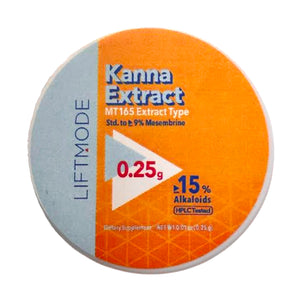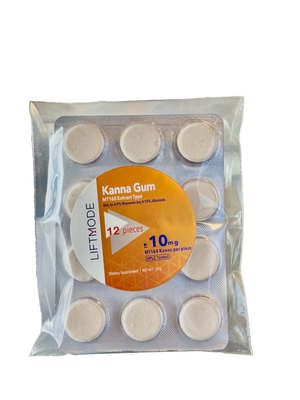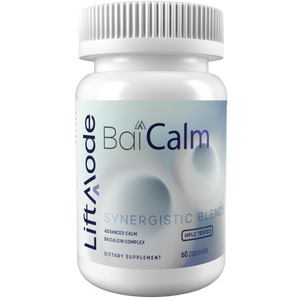You’ve tried all the tricks – counting sheep, turning off your cellphone an hour before bed, cutting your coffee intake, setting your alarm to a regular time.
Still, nothing works. You just can’t seem to get enough sleep. Now it’s time to go to plan B – sleep aids.
Not getting enough sleep is simply not going to work. So, if the tricks that everyone talks about aren’t getting the job done then it’s time for something a little stronger.
But how do you know what to take? And is it really safe to take over-the-counter sleep aids regularly? And when is it time to see a doctor?
Most people will go for OTC sleep aids or see their doctor for a prescription right away. But perhaps this route is missing a key step. Keep reading to find out about non habit forming Sleep Aids!
![]()
Over the Counter Sleep Aids
There are several over the counter or prescription sleep aids that people use to help with sleep problems.
However, their effects are not always desirable. Reasons, why people might choose to opt out of OTC or prescription sleep aids, include:
Over-the-counter sleep aids typically use antihistamines as their primary ingredient.
[2] The most popular OTC sleep aids use antihistamines called diphenhydramine or doxylamine as the key sleep-promoting ingredient.
[3]
While antihistamine-based OTC sleep aids are certainly effective in the short-term, there are also definitely some challenges to bear in mind:
-
-
Antihistamines can cause severe drowsiness. [4] You should make sure that you don’t take an OTC sleep aid during the day or if you need to focus on anything in the evening.
-
-
Your body builds a tolerance to these types of medications very quickly. [5] So, you might find that after only a few days of using the sleep aid, your sleeping problems are back again. This can also lead to abuse if the dosage is increased as your tolerance develops.
-
-
Many over the counter sleep aids contain additional medications. For example, some sleep aids contain diphenhydramine along with Advil (Ibuprofen) or acetaminophen.[6] For people with allergies to medications, this can be dangerous, so it is important to always read the label and dosage instructions carefully.
Prescription Sleep Aids
Prescription sleep aids are only used for severe sleep problems and insomnia. As their name suggests, they require a doctor’s prescription and are regulated by the government in most countries.
Examples include benzodiazepines like lorazepam and temazepam.
[7] Benzodiazepines target GABA receptors in your brain to reduce signals from the central nervous system (CNS) and to produce a sedating effect.
Although effective, benzodiazepine-based prescription sleep aids have a very high potential for abuse, and tolerance builds quickly. They can also cause dangerous interactions with alcohol, and need to be used strictly according to your doctor’s advice.
[8]
Some prescription sleep aids also work on GABA receptors but are not in the benzodiazepine class of drugs. Although these are generally considered to be safer (for example, zoldiem), they still have the potential to produce side effects like daytime sleepiness and sleepwalking.
[9]
Finally, some prescription sleep aid medications target melatonin receptors. These types of medication are good for helping to restore a natural sleep-wake cycle and are especially helpful for people in shift-work jobs. They’re also considered to be the safest form of prescription sleep aid.
[10]
All-in-all, prescription sleep aids should be considered only as a last resort when nothing else works.
![]()
What are Some Good Herbal Sleep Aids?
Our recommendation is to first try one of these safer, non-habit forming sleep aid before going for OTC or prescription alternatives.
The potential benefits of these naturally-derived supplements definitely grant giving them a go before moving onto the more serious stuff.
1. Valerian Root
![]()
Valerian root is extracted from the
Valeriana officinalis plant and has been used in traditional medicine for thousands of years to promote healthy rest and relaxation.
[11]
Like the prescription sleep aids we mentioned above, Valerian also interacts with GABA receptors to reduce signals in the CNS.
[12] However, its effects are much milder and more manageable, with far less potential for abuse or tolerance.
In addition to boosting GABA levels in the brain, Valerian root also contains powerful antioxidants called hesperidin and linarin, which confer additional sleep-promoting benefits.
[13] One of the best things about Valerian is that it is naturally-derived and is non-habit forming.
2. Melatonin
![]()
Although it is often classified as a dietary supplement, Melatonin is actually not a herbal sleep aid at all. Rather, it is a synthetic version of a sleep-promoting hormone produced in the mammalian brain.
[14]
Melatonin doesn’t interact with GABA receptors but helps to promote sleep in its own unique way. In the human body, melatonin is important for maintaining the sleep-wake cycle (the circadian rhythm).
[15]
Melatonin supplements do not make you drowsy. They are not necessarily the most effective non-habit forming sleep aid, either. However, Melatonin is effective when used for supporting healthy sleeping habits – especially to counter the effects of jet-lag and shift work.
[16]
3. Magnesium
![]()
Magnesium is growing increasingly popular as a non-habit forming sleep aid. Magnesium is an essential mineral and is required for over 300 enzymes to function properly in the human body.
[17]
Numerous studies from around the world have shown that most people do not consume enough magnesium in their diets and suffer from subclinical deficiencies. This is true in both developed and developing countries.
[18]
Magnesium deficiency can be caused by a number of factors – not only through a lack of magnesium in the diet. However, it is well known that sub-optimal levels of magnesium are associated with poor sleep. Increasing your magnesium intake by using a dietary supplement is a great way to improve sleep quality as well as your overall health and vitality.
[19]
4. Passionflower
![]()
Passionflower (also known as
Passiflora incarnata) is a flowering plant that grows in South America and some parts of the United States. Like Valerian root, Passionflower is a non-habit forming sleep aid that mildly affects GABA receptors.
[20]
Several clinical trials have shown that Passionflower is effective at reducing feelings of stress and promoting relaxation. Reviews of studies have indicated that it has effective sedative-like benefits and may improve the efficacy of OTC sleep aids.
[21]
Animal studies have pointed to improvements in slow-wave sleep (deep sleep) and reductions in the time taken to fall asleep, after administration of Passionflower.
[22] In addition to its sleep aid benefits, this natural supplement also has powerful anti-inflammatory effects.
[23]
The Best Non Habit Forming Sleep Aid
Pharmaceutical companies are able to invest tens of millions of dollars into the research and development of laboratory-made medications for sleep and are able to produce highly effective medications.
Nevertheless, many people are still looking for herbal and natural alternatives. Although they are not always as effective, natural sleep aids have the benefit of being non-habit forming and lacking significant side effects.
Enter LiftMode’s Sleep Stack Capsules…
![]()
We’ve packed four herbal sleep aid supplements into a single vegan + vegetarian-friendly pullulan capsule.
Ingredients include Melatonin, Oleamide, vitamin C, and Levo-tetrahydropalmatine (L-THP).
We spent years developing the correct ratio of ingredients so that they all work synergistically to produce the most effective non-habit forming sleep aid available today!
The powerful sleep caps have been a huge hit since they were released in 2018. All you’ll need is 1-2 capsules around 2 hours prior to sleep, and you’ll notice results quickly, without the negatives associated with other sleep aids.
LiftMode Sleep Caps review:
Here’s what people on the internet are saying about our Sleep Caps:
“
LiftMode Sleep Caps are Amazing:
As someone who has been a slave to benadryl to sleep for the last 10 years these are finally the ones to break that habit. I've been a fan of L-THP for a while but the combo in these works fantastic. I'm super impressed, just one and I can easily fall asleep within 30 minutes. The only problem is in the morning when my alarm goes off I'm a bit more confused than I would like but after a shower I feel normal. I highly recommend these to anyone who has trouble falling/staying asleep.”
– Reddit.com.
[24]
“
A go to for sleep:
I was very surprised at how quickly and efficient Sleep Caps have improved my sleep on those nights when my brain just won't settle down. Even if I am nervous before a big day at work, I am able to still get that rest I need. My biggest concern was the grogginess that comes with many melatonin otc sleep aids but this hasn't been the case with Sleep Caps. This was the biggest reason I chose this supplement. I feel refreshed in the morning.”
– verified product review on LiftMode.com
![]()
Medical Disclaimer
Not intended to treat, diagnose, or cure any disease or ailment. Please read and fully understand potential adverse effects before using this product. These statements have not been reviewed by the FDA and are not written by a medical professional. Please consult your doctor before using any supplements, especially if you have any medical conditions. Tristan
B.Sc. in Molecular Biology and Biochemistry Researched & written by
Tristan and verified by the Liftmode.com Research Team
Citations and Supporting Literature
[1] Fitzgerald, T., & Vietri, J. (2015).
Residual Effects of Sleep Medications Are Commonly Reported and Associated with Impaired Patient-Reported Outcomes among Insomnia Patients in the United States. Sleep disorders,
2015, 607148.
[2] Harvard Health. (2018).
Are drugstore sleep aids safe? [online] Available at:
https://www.health.harvard.edu/staying-healthy/are-drugstore-sleep-aids-safe
[3] Culpepper, L., & Wingertzahn, M. A. (2015).
Over-the-Counter Agents for the Treatment of Occasional Disturbed Sleep or Transient Insomnia: A Systematic Review of Efficacy and Safety. The primary care companion for CNS disorders, 17(6), 10.4088/PCC.15r01798.
[4] Lieberman, P. (2009).
Histamine, antihistamines, and the central nervous system. Allergy Asthma Proc. 30(5):482-6.
[5] Lie, J. D., Tu, K. N., Shen, D. D., & Wong, B. M. (2015).
Pharmacological Treatment of Insomnia. P & T : a peer-reviewed journal for formulary management,
40(11), 759-71.
[6] NHS. (2019).
Diphenhydramine (including Nytol Original). NHS.uk [online]. Available at:
https://beta.nhs.uk/medstest/diphenhydramine/
[7] Guilleminault, C. (1990).
Benzodiazepines, breathing, and sleep. Am J Med. 88(3A):25S-28S. Review. PubMed PMID: 1968716.
[8] Schmitz, A. (2016).
Benzodiazepine use, misuse, and abuse: A review. The mental health clinician,
6(3), 120-126. doi:10.9740/mhc.2016.05.120
[9] Inagaki, T., Miyaoka, T., Tsuji, S., Inami, Y., Nishida, A., & Horiguchi, J. (2010).
Adverse reactions to zolpidem: case reports and a review of the literature. Primary care companion to the Journal of clinical psychiatry,
12(6), PCC.09r00849.
[10] Neubauer D. N. (2008).
A review of ramelteon in the treatment of sleep disorders. Neuropsychiatric disease and treatment,
4(1), 69-79.
[11] Bent, S., Padula, A., Moore, D., Patterson, M., & Mehling, W. (2006).
Valerian for sleep: a systematic review and meta-analysis.
The American journal of medicine,
119(12), 1005-12.
[12] Becker, A., Felgentreff, F., Schröder, H., Meier, B., & Brattström, A. (2014).
The anxiolytic effects of a Valerian extract is based on valerenic acid. BMC complementary and alternative medicine,
14, 267. doi:10.1186/1472-6882-14-267
[13] Santos, G., Giraldez-Alvarez, L. D., Ávila-Rodriguez, M., Capani, F., Galembeck, E., Neto, A. G., Barreto, G. E., … Andrade, B. (2016).
SUR1 Receptor Interaction with Hesperidin and Linarin Predicts Possible Mechanisms of Action of Valeriana officinalis in Parkinson. Frontiers in aging neuroscience,
8, 97.
[14] Ferracioli-Oda, E., Qawasmi, A., & Bloch, M. H. (2013).
Meta-analysis: melatonin for the treatment of primary sleep disorders. PloS one,
8(5), e63773.
[15] Brown G.M. (1994).
Light, melatonin and the sleep-wake cycle. Journal of psychiatry & neuroscience : JPN,
19(5), 345-53.
[16] Herxheimer, A., Petrie, K. J. (2002).
Melatonin for the prevention and treatment of jet lag. Cochrane Database Syst Rev. Review. PubMed PMID: 12076414.
[17] Schwalfenberg, G. K., & Genuis, S. J. (2017).
The Importance of Magnesium in Clinical Healthcare. Scientifica,
2017, 4179326.
[18] DiNicolantonio, J. J., O'Keefe, J. H., & Wilson, W. (2018).
Subclinical magnesium deficiency: a principal driver of cardiovascular disease and a public health crisis. Open heart, 5(1), e000668.
[19] Abbasi, B., Kimiagar, M., Sadeghniiat, K., Shirazi, M. M., Hedayati, M., & Rashidkhani, B. (2012).
The effect of magnesium supplementation on primary insomnia in elderly: A double-blind placebo-controlled clinical trial. Journal of research in medical sciences : the official journal of Isfahan University of Medical Sciences, 17(12), 1161-9.
[20] Elsas, S. M., Rossi, D. J., Raber, J., White, G., Seeley, C. A., Gregory, W. L., Mohr, C., Pfankuch, T., … Soumyanath, A. (2010).
Passiflora incarnata L. (Passionflower) extracts elicit GABA currents in hippocampal neurons in vitro, and show anxiogenic and anticonvulsant effects in vivo, varying with extraction method.
Phytomedicine : international journal of phytotherapy and phytopharmacology, 17(12), 940-9.
[21] Ngan, A., Conduit, R. (2011)
A double-blind, placebo-controlled investigation of the effects of Passiflora incarnata (passionflower) herbal tea on subjective sleep quality. Phytother Res. 25(8):1153-9.
[22] Guerrero, F. A., & Medina, G. M. (2017).
Effect of a medicinal plant (Passiflora incarnata L) on sleep. Sleep science (Sao Paulo, Brazil),
10(3), 96-100.
[23] Kim, M., Lim, H. S., Lee, H. H., & Kim, T. H. (2017).
Role Identification of Passiflora Incarnata Linnaeus: A Mini Review. Journal of menopausal medicine,
23(3), 156-159.
[24] u/foxbones. (2018).
LiftMode Sleep Caps are Amazing. Reddit.com. [online] Available at:
https://www.reddit.com/r/Nootropics/comments/8tfaa4/liftmode_sleep_caps_are_amazing/




